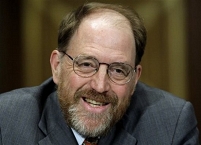Erstellt am: 15. 6. 2012 - 14:39 Uhr
Egypt in the grips of a "soft coup"?
Subscribe to the Reality Check podcast and get the whole programme after the show.
Comment by Sammy Khamis
The Supreme Constitutional Court (SCC) in Egypt made two significant announcements yesterday, both having a direct effect on the presidential elections and the process of democratisation in the country. The first verdict didn´t come as a huge surprise: Ahmed Shafiq, the former Mubarak Prime Minister under Mubarak, Army General and long-time government member was not suspended from running for president in the second round of the elections taking place this weekend. Former government members are by law forbidden to run for any political office unless they left office more than ten years ago.
The second decision came as a blow to many Egyptians: The Court decided to dissolve parliament. So far the judges have not given a clear explanation for that, but the verdict challenges the legal circumstances under which the elections late last year where held. Whether the rule is sound or not, it sends out a clear message that is not limited to its legality. It´s also a political statement, in view of the time it was made public: two days before the presidential elections.
That raises many questions: Who will control an elected president when there is no elected parliament? Who will propose laws? What happens to the constituent assembly, since this body emerged from the parliament? It also raises (once again) the question of how willing the Military Council really is to hand over power, if under their rule the only democratic institution is dissolved only six months after starting their work.
The SCC´s decision is highly arguable in its legal measures and inexplicable in its timing. Now, the will for profound change towards a democratic transition is once again targeted by a small group at the beneficiary of the old Mubarak cadre.
Dieses Element ist nicht mehr verfügbar
Should Greece leave the Euro?
Vivien Schmidt considers the pros and cons of Greece leaving the single currency, and measures needed to stabilize Europe's struggling economies.
Dieses Element ist nicht mehr verfügbar
James K. Galbraith

James K. Galbraith
James K. Galbraith is, like his father, one of America's most famous and influential economists.
He talks to Robert Zikmund about his view on the current economic crisis. Hear the whole interview and read the transcript here.
Homophobia in Northern Ireland
A new report shows alarming levels of homophobia in Northern Ireland. Steve Crilley speaks to Gavin Boyd from the Rainbow Project, which monitors homophobic attitudes in Northern Ireland.
Dieses Element ist nicht mehr verfügbar
Australia's marine parks
Australia is planning to create the world's largest marine reserve in the run up to Rio +20.
Chris Cummins looks at the project and what it means for marine wildlife and the environment.
Dieses Element ist nicht mehr verfügbar
FM4 Reality Check
Monday to Friday from 12.00 to 14.00, and after the show via Podcast or fm4.orf.at/realitycheck.


